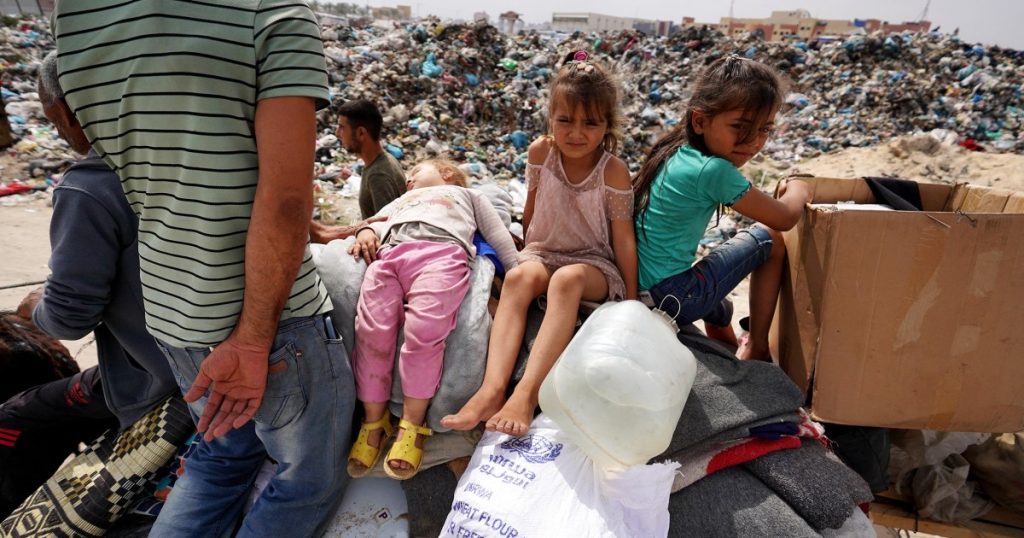Israeli forces have pushed deeper into the city of Rafah in Gaza, triggering global condemnation after an airstrike led to a major fire that killed dozens of Palestinians. The White House stated that Israel had not crossed President Joe Biden’s “red line” despite the escalation of violence. The Biden administration clarified that they did not perceive the current situation in Rafah as a major ground operation that would result in a change in U.S. policy, which includes a threatened halt to weapons shipments to Israel. Israeli tanks were seen near central Gaza city, but U.S. officials stated that they were moving along a strategic strip of land along the Egypt-Gaza border, not within the town itself.
The deadly airstrike in Rafah that resulted in the tragic loss of life has intensified international pressure, with the United Nations ordering Israel to cease its offensive. The United Nations Security Council is expected to vote on a draft resolution requesting an immediate halt to the offensive and a cease-fire in Gaza. Israel submitted a new cease-fire proposal to mediators, offering a “sustainable calm” but not a complete end to the conflict, as demanded by Hamas. Hamas officials have stated that they have not received any proposals from the mediators so far. The Israel Defense Forces are still investigating the airstrike and the resulting fire that killed civilians, including children. The IDF targeted two senior Hamas militants, but it is uncertain what caused the fire and the tragic loss of life.
The U.S. had previously warned Israel against launching a full-scale ground invasion of Gaza early in the conflict. Israeli Prime Minister Benjamin Netanyahu had announced plans for a ground invasion, but Israeli troops quietly entered Gaza in late October, resulting in a prolonged ground offensive that has led to thousands of casualties. This ground offensive follows attacks by Hamas, leading to a cycle of violence and retaliation. President Biden’s warning regarding the U.S. “red line” is reminiscent of former President Obama’s stance on the use of chemical weapons in the Syrian civil war, drawing criticism for failing to take action when the red line was crossed.
The current situation in Gaza has brought heightened attention to the conflict, with images of the aftermath of the deadly airstrike adding pressure on the U.S. to act. The White House has expressed its commitment to preventing further loss of innocent lives in the conflict but has not indicated a change in policy regarding U.S. support for Israel. The U.S. remains engaged with Israeli officials to gather information about the situation on the ground in Rafah and continues to advocate for a peaceful resolution to the conflict. The ongoing violence in Gaza has led to a humanitarian crisis, with civilians bearing the brunt of the hostilities.
The situation in Rafah and Gaza reflects the complexity and challenges of the Israeli-Palestinian conflict, with both sides engaging in retaliatory actions that have resulted in a cycle of violence and destruction. The international community has called for a cessation of hostilities and a negotiated settlement to end the suffering of civilians caught in the crossfire. The U.S. plays a crucial role in mediating the conflict and advocating for a peaceful resolution that addresses the underlying grievances of both Israelis and Palestinians. As the conflict escalates, the need for international cooperation and diplomacy becomes even more urgent to prevent further loss of life and destruction in Gaza and beyond.


